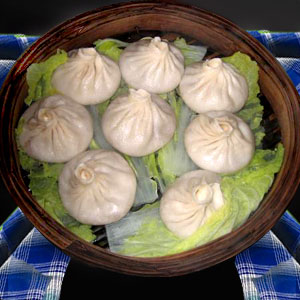Maca Root

Historically grown in Peru, Maca is an aphrodisiac super food traditionally consumed by the people of the Andes for centuries. This root vegetable had been the staple diet in the region for thousands of years. It is only recently that Western researchers discovered this ancient herb and the many benefits it provides for women - such as sexual health, improving fertility and combating effects of menopause among other benefits.
The Incan civilization used maca in their daily food. It gave them enhanced energy, increased libido, improved bone density other than being a tasty addition to the daily diet. It was also a natural remedy known for its special properties to enhance energy and stamina. Maca is termed as Peruvian Ginseng due to its natural stimulating qualities that are similar to the popular ginseng-related herbs.
Cultivation
Botanically, maca is the common name for Lepidium meyenii, of the broccoli family. The maca root, which refers to the root of the plant, resembles a turnip. Maca is divided into various subcategories depending upon the color of the root such as red, black, pink or yellow. That is why it is akin to the mustard plant in appearance, with its flowers resembling those of a mustard plant. The plant is grown at more than 4000 meters height.
Maca root is grown extensively in the Andes as the environment here is ideal for its growth. It thrives here despite the harsh temperatures and frost. Potentially, Maca holds its nutrients in the flesh of its root. The root or tuber is rich in protein, natural sugars, potassium, magnesium, calcium, iron and fiber.
Peruvian Maca and the Chinese Ginseng
While the Chinese or Korean ginseng is very popular, the Peruvian maca packs enough powers to stimulate concentration and memory. Maca Lepidium of Peru has similar powers as Ginseng Panax.
So, what is the main difference between the powers of Chinese ginseng and Peruvian Maca? What ginseng does for the mind, maca does for the body. Maca lepidium Meyenii regulates hormones. Maca gives you extra energy and takes away the discomforts of menopause. It ensures that the body produces more testosterone.
Nutritional properties of maca root
Maca contains Vitamin B1, which is important for converting carbohydrates into energy. Vitamin B2 in maca, which works with other B vitamins, is essential for the production of red cells and release of energy from carbohydrates. Vitamin C is an essential nutrient and also an antioxidant that helps improve the cognitive process. Maca is primarily about 70% carbohydrate, 13-15% protein along with fiber and small amount of fat. It provides trace elements such as iron, calcium, zinc and magnesium.
Benefits of Maca - the super food
While maca is a win-win food as its benefits are unlimited and it supports the whole body, it also helps build energy, increase concentration and reduce stress.
Libido and fertility: Topping the list of maca benefits is that this powerful root is a booster for male libido and female potency. It helps create an aphrodisiac-like response in men who suffer impotency, low sex-drive and fertility problems. The maca root is known to improve the quality and quantity of sperm in men who have lower than normal sperm counts, which helps to increase the level of fertility.
Maca for Women health conditions
Maca holds promise in the reduction of menopausal symptoms in women. It relieves fatigue and helps to lessen the severity and frequency of hot flashes that occur during menopause due to hormonal changes. Maca helps restore hormonal balance.
Similarly, menstrual problems that often plague women of child-bearing age such as cramps, heavy and irregular periods and pre-menstrual symptoms can be alleviated by maca roots.
For increased sexual desire and satisfaction in women - maca is aphrodisiac. It works on sexual dysfunction in women. It is also a potent fighter against chemically- induced sexual dysfunction.
Not surprisingly then, maca root has been hailed as effective as it is loaded with minerals, fatty acids, and nutrients which balance sex hormones and improve mood. Typically with a healthy mood and balanced hormone levels, arousal is usually much easier to achieve.
As for supporting the mood, researchers have found that maca root with natural fatty acids in food supports mood and overall brain health. Fatty acids in maca root support brain function which is largely responsible for stabilizing analytical skills, cognitive function and rational thinking. Doctors, who focus on holistic wellness, recommend omega-3 fatty acids as the first step in alleviating certain symptoms associated with depression, anxiety and stress.
Infertility is increasingly becoming an issue with both women and men and many are turning to natural alternatives for improving fertility. Maca root shows promising results during research done on fertility in animals. Maca is a traditional fertility enhancer especially for females and can increase serum luteinizing hormone in the pituitary gland.
Increases bone density
As you age, maintaining bone density becomes a challenge. Studies of maca's effect on menopausal symptoms have found that it increases important marker's association with bone density. Women with family history of osteoporosis or those seeking to protect their bone health can consume maca root.
Energy enhancer
As a food rich in vitamins, minerals and essential fatty acids and protein, maca supports with energy levels and aids in recovery from injury. It is also used for increasing energy and stamina among athletes.
Depression
Among the essential benefits of maca is the ability to relieve mild depression as an adaptogen. Individuals using maca notice an increase in the levels of serotonin in their body. While common antidepressant medications tend to have uncomfortable side effects such as weight gain, fatigue and dulled senses, maca has none of these side effects and the active ingredient in the maca root boosts energy and lifts depression naturally.
- It is a proven solution for fatigue.
- Maca helps to keep glucose levels under control.
- Helps in preventing osteoporosis
- Maca boosts memory and learning capabilities.
- It has fertility enhancing qualities in both men and women
- It increase libido and enhances sexual activity.
- Natural fatty acids such as linolenic, palmitic and oleic acids in maca help support brain function.
Dosage
Maca comes in the form of capsules, liquid and powder. It can be eaten as a supplement with food as a daily dose of 1000 to 2000 mg to increase sexual desire in men and women. Doctors recommend taking maca for a couple of months and then stopping for a couple of weeks before resuming again. It is not recommended for children.
- Patients with thyroid conditions should avoid maca as glucosinolates taken in excess and combined with low-iodine diet can cause goiter.
- Maca is not recommended in women who are breast feeding or pregnant.
- There is no evidence of adverse reactions with maca as it is reported to have a low degree of acute oral toxicity in animals and low cellular toxicity in vitro.
- As for toxicity, no adverse reactions have been reported in animals and its long-time use as a food product suggests low potential for toxicity. Further research is needed to determine the main mechanism of maca.
- Those with known allergies and sensitivities should avoid taking maca in any form.
- But there is no clear assessment yet on the long term safety or toxicity with consumption of maca. It's interactions with other medications is not clear too. Some side effects could be blood pressure changes and gastrointestinal distress.
- Maca might alter the balance of sex hormones and is not advised for women undergoing hormone replacement therapy or on birth control pills.
Top of the Page: Maca Root
Tags:#maca root #maca Peruvian ginseng #maca chica
 Food and Nutrition Facts
Food and Nutrition Facts Chamomile
Parsnip Soup
Dim Sum
Gazpacho Soup
Whole Grain Cereal
Jicama Nutrition
Bok Choy Stir Fry
Chia Seeds Benefits
Teff Nutrition
Kaniwa
Flax Seed
Wheatgrass Benefits
Kelp Benefits
Types of Chili Peppers
Medicinal Benefits of Pomegranate
Arugula Leaves
Maca Root
Pitaya Fruit
Benefits of Celery
Leek
Asparagus Benefits
Oyster Stew
Oyster Mushroom
Lupin Beans
Quinoa
Freekeh
Extra Virgin Olive Oil
Dill Pickle
Sauerkraut
Fat Burning Foods
Nutrition Chart
Food Combining
Calorie Counter
calories ...
Non Alcoholic Beverage
Punch Recipes
Food Label Nutrition
Homemade Sausages
Cooking Steak
Eating on a Budget
Budget Friendly Recipes
Quick Recipes
 Healthy Packed Lunch
Healthy Packed Lunch Overnight Oats Recipes
Eggplant Casserole
Brunch Recipes
Burrito Recipes
Muffin Recipes
Cupcake Frosting
Apple Crisp
Stir Fry Cooking
Seafood Salad Recipe
Cooking Corn on the Cob
Finger Food Recipe
Sandwich Recipe
Bread Stuffing Recipes
Easy Chili Recipes
Picnic Recipes
Edible Mushroom Recipes
Mushroom Soup Recipes
Dip Recipe
Tapas Recipe
Corned Beef Recipe
Canned Salmon Recipe
Tilapia Recipes
Crumb Cake
Flourless Chocolate Cake
Regional Food
 Lasagna Recipe
Lasagna Recipe Peruvian Ceviche
Chinese Food Recipe
Vietnamese Food Recipe
Malaysian Food
Korean Food Recipe
Indian Curry Recipe
Edible Rice Paper
Mexican Food Recipe
Quesadilla
Guacamole Dip
Italian Food Recipe
Spanish Food Recipe
Kosher Food
Falafel Recipe
Tandoori Chicken
Noodles
Canape
Couscous
Meatloaf
Chowder
Gumbo Recipe
Crockpot Recipes
Moroccan Food
Healthy Food
Pre Workout Snack
Matcha Tea
Simple food Swaps to Lose Weight
Foods to Beat Stress
Foods to beat Insomnia
Bone Density Foods
Prebiotic Foods
Kefir Grains
Agave Nectar
Spicy Trail Mix
Pesto Sauce
Homemade Hummus
Crab Cake Sauce
Bamboo Shoots Nutrition
Lemon Grass Plant
Butter Beans Recipes
Loose Green Tea
Seaweed Nutrition
Healthy Food
Low Fat Granola Bar
Steel Cut Oatmeal
Fruit Pizza
Pizza Toppings
Green Smoothie
Healthy Meal Planning
Delicious Mealtime Recipes
Heart Healthy Fats
Healthy Heart Recipe
Healthy Dinner Recipe
Healthy Dessert Recipe
Healthy Fast Food
Healthy Kid Recipe
Probiotic Food
Diabetic Friendly Foods
Fruit Salad Recipe
Bread Pudding
Tofu Recipe
Oat Bran
Broccoli Salad
Avocado Recipe
Iron Rich Food
Brain Foods
Antioxidant Food
Natural Diuretic
Low Fat Cooking Tips
Rice Pilaf Recipe
Low fat Chicken Recipe
Food Tips

Sous Vide Cooking Technique
Natural Sugar Substitute
Stevia Sugar Substitute
Sunflower Seeds Nutrition
Bouquet Garni
Cake Decorating Tips
High Satiety Foods
Thanksgiving Dinner
Safe Food Storage
Frozen Food Storage Tips
Cold Storage Food Tips
Leftover Recipe
Food Pyramid
Dairy Free Food
Microwave Cooking
Food Intolerance
Homemade Ice Cream
Apple Cider Vinegar
Benefits of Honey
Beverage Cooler
Food Poisoning Symptom
Food Allergy Symptom
Food Addiction
Top of the Page: Maca Root
Popularity Index: 101,738

